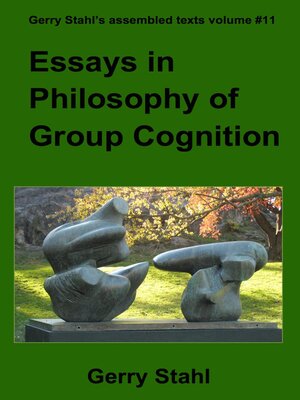Essays in Philosophy of Group Cognition
ebook ∣ Gerry Stahl's eLibrary, #11 · Gerry Stahl's eLibrary
By Gerry Stahl

Sign up to save your library
With an OverDrive account, you can save your favorite libraries for at-a-glance information about availability. Find out more about OverDrive accounts.
Find this title in Libby, the library reading app by OverDrive.



Search for a digital library with this title
Title found at these libraries:
| Library Name | Distance |
|---|---|
| Loading... |
The essays in this volume seek to address foundational questions related to the concept of group cognition. This concept emerged in the book "Group Cognition", where the theoretical themes of the present volume were already discussed, mainly in Part III, especially Chapter 16. Empirical studies of group cognition in the Virtual Math Teams (VMT) Project involving problems of combinatorics were presented in "Studying VMT", where Part IV focused on conceptualizing group cognition in VMT. When the VMT project switched to dynamic geometry as its mathematical domain, "Translating Euclid" included Chapter 8 on theory, including both a theory of referential resources and reflections on shared understanding. Finally, "Constructing Dynamic Triangles Together" provided a detailed longitudinal case study oriented toward the adoption of group practices as providing preconditions for group cognition.
The present volume includes essays that attempted to address the philosophical issues raised in the more general publications. In particular, philosophy of group cognition should tackle the following questions:
* What is the nature of group cognition?
* What are the conditions of possibility for the existence of group cognition?
Question (a) seeks a definition or description of group cognition: What are its characteristics and how does it differ from (or relate to) other forms of cognition, such as individual cognition and social cognition?
Question (b) inquires about what the necessary preconditions are that allow for group cognition, such as shared understanding.







